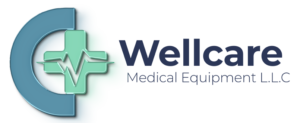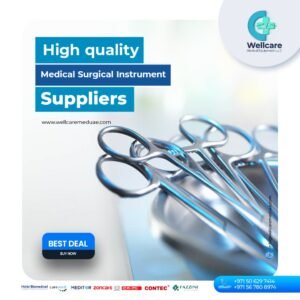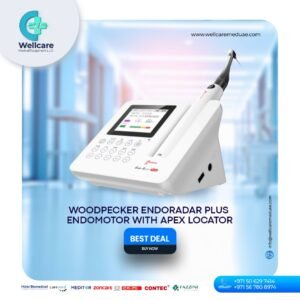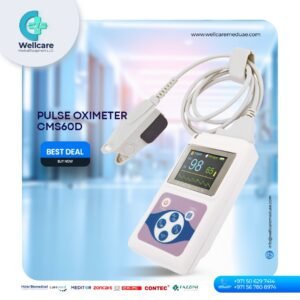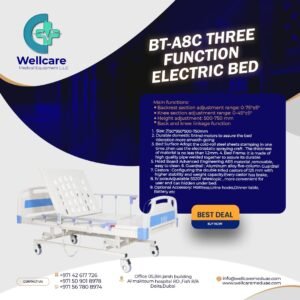ENT Equipment supplier in Cameroon
ENT (Ear, Nose, and Throat) equipment plays a vital role in the healthcare system of Cameroon, contributing significantly to the diagnosis and treatment of a wide range of conditions affecting these essential organs. With a growing population and increasing healthcare demands, the need for specialized equipment to address ENT-related issues has become more crucial. This equipment allows medical professionals to accurately assess, diagnose, and treat conditions such as hearing loss, sinusitis, throat infections, and more complex issues like tumors and sleep apnea. Proper diagnosis through advanced ENT tools not only improves patient outcomes but also reduces the risk of complications from untreated conditions. The importance of ENT equipment is also seen in the efforts to reduce the burden of communicable diseases that affect the respiratory and auditory systems, which are common in Cameroon due to environmental and hygiene factors. Access to specialized tools like audiometers, laryngoscopes, and endoscopes enables early detection and effective management of such diseases. In regions where access to general healthcare is limited, these tools allow for more comprehensive care in localized settings, improving healthcare delivery at both urban and rural levels. Additionally, ENT equipment facilitates surgical interventions, enabling ENT specialists to perform both minor and major surgeries with precision. The presence of proper equipment reduces the dependency on external referrals, allowing for timely treatment within the country and minimizing the need for patients to seek specialized care abroad. This reduces healthcare costs and enhances the overall quality of care provided locally, improving the health infrastructure in Cameroon. Furthermore, as Cameroon continues to invest in its healthcare sector, the importance of modernizing ENT facilities and equipment becomes even more critical. The availability of up-to-date ENT equipment can attract more skilled professionals to the country and support medical education and training, which is essential for building a robust healthcare system.
Well Care Medical Equipment LLC, a supplier of medical equipment, offers a wide range of ENT (Ear, Nose, and Throat) equipment in Cameroon, which is essential for diagnosis, treatment, and surgery.
Otoscope: This tool is crucial for examining the ear canal and eardrum, helping doctors diagnose infections, blockages, or hearing issues.
Audiometer: Used for hearing tests, this device measures hearing acuity and helps in diagnosing hearing loss or auditory disorders.
Laryngoscope: This tool allows doctors to view the larynx (voice box) and vocal cords, aiding in diagnosing throat issues like tumors, infections, or vocal cord paralysis.
Endoscope: ENT endoscopes are used for detailed visualization of the nasal cavities, sinuses, or throat, allowing for a better diagnosis of conditions such as sinusitis, nasal polyps, or obstructions.
Nasal Speculum: This is used to widen the nostrils for better examination and treatment of nasal conditions, including blockages, inflammation, or deformities.
Tympanometer: This device measures the movement of the eardrum to evaluate middle ear function and diagnose issues such as fluid buildup or eustachian tube dysfunction.
Suction Equipment: Vital during ENT surgeries, suction devices help remove fluids, mucus, and debris during procedures.
Surgical Instruments: Specialized instruments like forceps, scissors, and retractors are used for ENT surgeries, ensuring precision during interventions.
Nebulizers: Often used for treating respiratory conditions, these devices administer medication in mist form to alleviate throat and nasal issues.
Headlight Systems: These lights provide bright, focused illumination, improving visibility for ENT doctors during examinations and procedures.
Well Care Medical Equipment LLC has had several key impacts on healthcare in Cameroon, particularly through its supply of advanced medical equipment, including specialized ENT tools. These impacts have significantly improved the quality of care, diagnosis, and treatment across the healthcare system. Here are some of the major contributions:
Improved Access to Advanced Medical Equipment: One of the most notable impacts is the increased availability of modern medical equipment in hospitals and clinics across Cameroon. Well Care Medical Equipment LLC has bridged the gap in access to sophisticated tools that were previously scarce, ensuring that healthcare providers have the necessary resources to deliver high-quality care.
Enhanced Diagnosis and Treatment: The supply of specialized equipment like ENT tools, surgical instruments, and diagnostic devices has allowed medical professionals in Cameroon to provide more accurate diagnoses and effective treatments. This has improved patient outcomes, especially for conditions that affect the ear, nose, and throat, which are common in the country due to environmental factors and infections.
Strengthening Local Healthcare Infrastructure: Well Care Medical Equipment LLC’s contributions have played a role in the modernization of the healthcare infrastructure in Cameroon. By supplying state-of-the-art equipment, they have helped upgrade hospitals, clinics, and medical centers, making them more equipped to handle complex cases and perform advanced procedures, reducing the reliance on external healthcare systems.
Reducing Healthcare Costs and Travel: With access to high-quality medical equipment within the country, there is less need for patients to travel abroad for specialized care. This not only reduces the financial burden on patients but also strengthens the local healthcare system by retaining more patients and encouraging local treatment.
Capacity Building and Medical Training: By supplying modern equipment, Well Care Medical Equipment LLC has indirectly supported the professional development of healthcare workers. With access to the latest technology, medical staff can receive better training and gain expertise in using these tools, elevating the overall standard of care in the country.
Increased Efficiency in Medical Procedures: The provision of reliable and cutting-edge medical equipment has significantly enhanced the efficiency of medical procedures, from surgeries to routine check-ups. This has led to faster diagnoses, timely interventions, and shorter recovery times for patients, making healthcare delivery more effective.
Support for Specialized Medical Services: In addition to general healthcare, Well Care Medical Equipment LLC has strengthened specialized medical services in Cameroon, such as ENT care, cardiology, and dental care. The availability of specialized tools ensures that doctors can treat a wider range of conditions with precision and care.
Overall, Well Care Medical Equipment LLC has played a crucial role in improving healthcare outcomes in Cameroon by enhancing the availability and quality of medical tools, empowering healthcare professionals, and improving the overall patient experience
